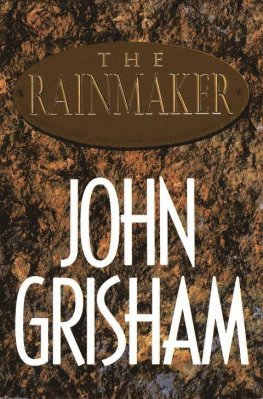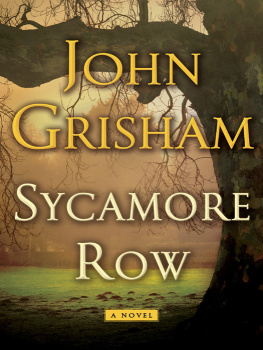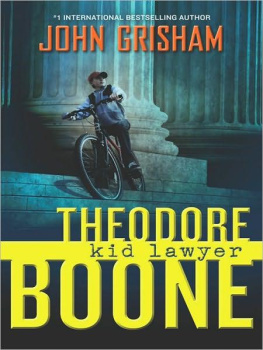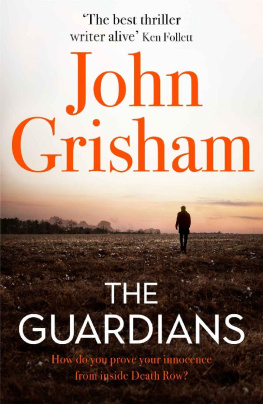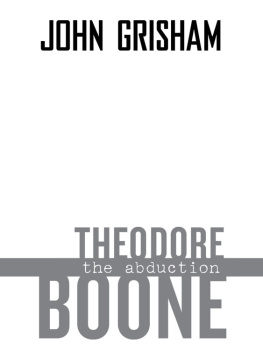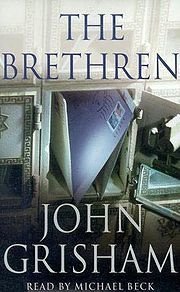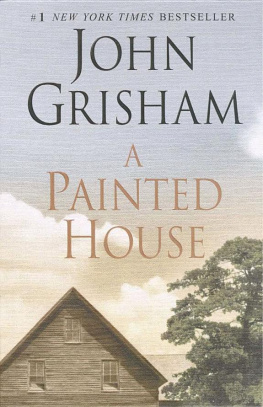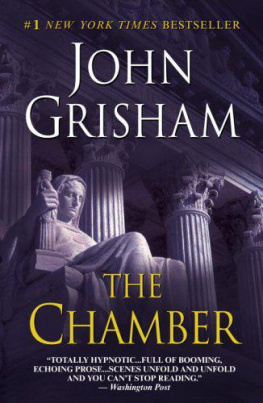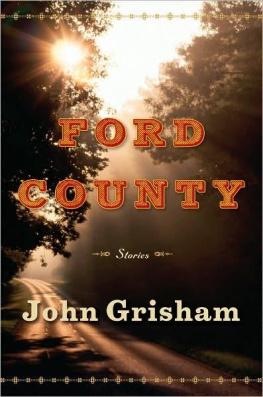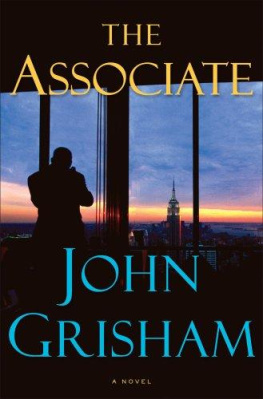John Grisham - The Litigators
Here you can read online John Grisham - The Litigators full text of the book (entire story) in english for free. Download pdf and epub, get meaning, cover and reviews about this ebook. year: 2011, publisher: Doubleday, genre: Detective and thriller. Description of the work, (preface) as well as reviews are available. Best literature library LitArk.com created for fans of good reading and offers a wide selection of genres:
Romance novel
Science fiction
Adventure
Detective
Science
History
Home and family
Prose
Art
Politics
Computer
Non-fiction
Religion
Business
Children
Humor
Choose a favorite category and find really read worthwhile books. Enjoy immersion in the world of imagination, feel the emotions of the characters or learn something new for yourself, make an fascinating discovery.

- Book:The Litigators
- Author:
- Publisher:Doubleday
- Genre:
- Year:2011
- Rating:3 / 5
- Favourites:Add to favourites
- Your mark:
- 60
- 1
- 2
- 3
- 4
- 5
The Litigators: summary, description and annotation
We offer to read an annotation, description, summary or preface (depends on what the author of the book "The Litigators" wrote himself). If you haven't found the necessary information about the book — write in the comments, we will try to find it.
The Litigators — read online for free the complete book (whole text) full work
Below is the text of the book, divided by pages. System saving the place of the last page read, allows you to conveniently read the book "The Litigators" online for free, without having to search again every time where you left off. Put a bookmark, and you can go to the page where you finished reading at any time.
Font size:
Interval:
Bookmark:
A Time to Kill
The Firm
The Pelican Brief
The Client
The Chamber
The Rainmaker
The Runaway Jury
The Partner
The Street Lawyer
The Testament
The Brethren
A Painted House
Skipping Christmas
The Summons
The King of Torts
Bleachers
The Last Juror
The Broker
The Innocent Man
Playing for Pizza
The Appeal
The Associate
Ford County
The Confession
The Theodore Boone Books
Theodore Boone: Kid Lawyer
Theodore Boone: The Abduction
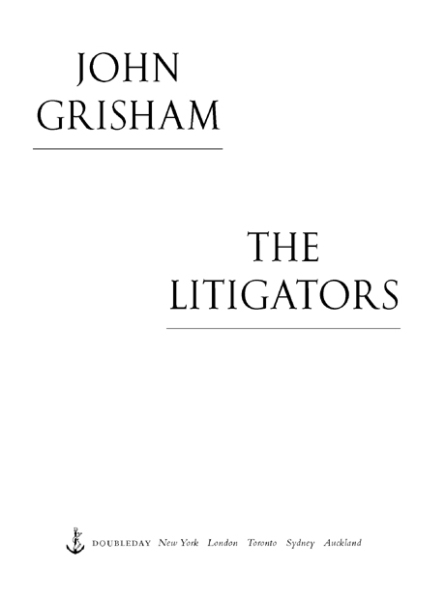
This book is a work of fiction. Names, characters, businesses, organizations, places, events, and incidents either are the product of the authors imagination or are used fictitiously. Any resemblance to actual persons, living or dead, events, or locales is entirely coincidental.
Copyright 2011 by Belfry Holdings, Inc.
All rights reserved. Published in the United States by Doubleday, a division of Random House, Inc., New York, and in Canada by Random House of Canada Limited, Toronto.
www.doubleday.com
DOUBLEDAY and the portrayal of an anchor with a dolphin are registered trademarks of Random House, Inc.
Jacket design by John Fontana
Jacket photograph by Deborah Lill
Cataloging-in-Publication Data is on file with the Library of Congress.
eISBN: 978-0-385-53525-0
v3.1
T he law firm of Finley & Figg referred to itself as a boutique firm. This misnomer was inserted as often as possible into routine conversations, and it even appeared in print in some of the various schemes hatched by the partners to solicit business. When used properly, it implied that Finley & Figg was something above your average two-bit operation. Boutique, as in small, gifted, and expert in one specialized area. Boutique, as in pretty cool and chic, right down to the Frenchness of the word itself. Boutique, as in thoroughly happy to be small, selective, and prosperous.
Except for its size, it was none of these things. Finley & Figgs scam was hustling injury cases, a daily grind that required little skill or creativity and would never be considered cool or sexy. Profits were as elusive as status. The firm was small because it couldnt afford to grow. It was selective only because no one wanted to work there, including the two men who owned it. Even its location suggested a monotonous life out in the bush leagues. With a Vietnamese massage parlor to its left and a lawn mower repair shop to its right, it was clear at a casual glance that Finley & Figg was not prospering. There was another boutique firm directly across the streethated rivalsand more lawyers around the corner. In fact, the neighborhood was teeming with lawyers, some working alone, others in small firms, others still in versions of their own little boutiques.
F&Fs address was on Preston Avenue, a busy street filled with old bungalows now converted and used for all manner of commercial activity. There was retail (liquor, cleaners, massages) and professional (legal, dental, lawn mower repair) and culinary (enchiladas, baklava, and pizza to go). Oscar Finley had won the building in a lawsuit twenty years earlier. What the address lacked in prestige it sort of made up for in location. Two doors away was the intersection of Preston, Beech, and Thirty-eighth, a chaotic convergence of asphalt and traffic that guaranteed at least one good car wreck a week, and often more. F&Fs annual overhead was covered by collisions that happened less than one hundred yards away. Other law firms, boutique and otherwise, were often prowling the area in hopes of finding an available, cheap bungalow from which their hungry lawyers could hear the actual squeal of tires and crunching of metal.
With only two attorneys/partners, it was of course mandatory that one be declared the senior and the other the junior. The senior partner was Oscar Finley, age sixty-two, a thirty-year survivor of the bare-knuckle brand of law found on the tough streets of southwest Chicago. Oscar had once been a beat cop but got himself terminated for cracking skulls. He almost went to jail but instead had an awakening and went to college, then law school. When no firms would hire him, he hung out his own little shingle and started suing anyone who came near. Thirty-two years later, he found it hard to believe that for thirty-two years hed wasted his career suing for past-due accounts receivable, fender benders, slip-and-falls, and quickie divorces. He was still married to his first wife, a terrifying woman he wanted to sue every day for his own divorce. But he couldnt afford it. After thirty-two years of lawyering, Oscar Finley couldnt afford much of anything.
His junior partnerand Oscar was prone to say things like, Ill get my junior partner to handle it, when trying to impress judges and other lawyers and especially prospective clientswas Wally Figg, age forty-five. Wally fancied himself a hardball litigator, and his blustery ads promised all kinds of aggressive behavior. We Fight for Your Rights! and Insurance Companies Fear Us! and We Mean Business! Such ads could be seen on park benches, city transit buses, cabs, high school football programs, even telephone poles, though this violated several ordinances. The ads were not seen in two crucial marketstelevision and billboards. Wally and Oscar were still fighting over these. Oscar refused to spend the moneyboth types were horribly expensiveand Wally was still scheming. His dream was to see his smiling face and slick head on television saying dreadful things about insurance companies while promising huge settlements to injured folks wise enough to call his toll-free number.
But Oscar wouldnt even pay for a billboard. Wally had one picked out. Six blocks from the office, at the corner of Beech and Thirty-second, high above the swarming traffic, on top of a four-story tenement house, there was the most perfect billboard in all of metropolitan Chicago. Currently hawking cheap lingerie (with a comely ad, Wally had to admit), the billboard had his name and face written all over it. But Oscar still refused.
Wallys law degree came from the prestigious University of Chicago School of Law. Oscar picked his up at a now-defunct place that once offered courses at night. Both took the bar exam three times. Wally had four divorces under his belt; Oscar could only dream. Wally wanted the big case, the big score with millions of dollars in fees. Oscar wanted only two thingsdivorce and retirement.
How the two men came to be partners in a converted house on Preston Avenue was another story. How they survived without choking each other was a daily mystery.
T heir referee was Rochelle Gibson, a robust black woman with attitude and savvy earned on the streets from which she came. Ms. Gibson handled the frontthe phone, the reception, the prospective clients arriving with hope and the disgruntled ones leaving in anger, the occasional typing (though her bosses had learned if they needed something typed, it was far simpler to do it themselves), the firm dog, and, most important, the constant bickering between Oscar and Wally.
Years earlier, Ms. Gibson had been injured in a car wreck that was not her fault. She then compounded her troubles by hiring the law firm of Finley & Figg, though not by choice. Twenty-four hours after the crash, bombed on Percocet and laden with splints and plaster casts, Ms. Gibson had awakened to the grinning, fleshy face of Attorney Wallis Figg hovering over her hospital bed. He was wearing a set of aquamarine scrubs, had a stethoscope around his neck, and was doing a good job of impersonating a physician. Wally tricked her into signing a contract for legal representation, promised her the moon, sneaked out of the room as quietly as hed sneaked in, then proceeded to butcher her case. She netted $40,000, which her husband drank and gambled away in a matter of weeks, which led to a divorce action filed by Oscar Finley. He also handled her bankruptcy. Ms. Gibson was not impressed with either lawyer and threatened to sue both for malpractice. This got their attentionthey had been hit with similar lawsuitsand they worked hard to placate her. As her troubles multiplied, she became a fixture at the office, and with time the three became comfortable with one another.
Font size:
Interval:
Bookmark:
Similar books «The Litigators»
Look at similar books to The Litigators. We have selected literature similar in name and meaning in the hope of providing readers with more options to find new, interesting, not yet read works.
Discussion, reviews of the book The Litigators and just readers' own opinions. Leave your comments, write what you think about the work, its meaning or the main characters. Specify what exactly you liked and what you didn't like, and why you think so.

